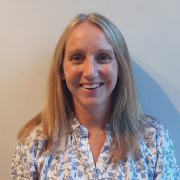Three career tips for genetic technologists and scientists: a conversation with Alison Taylor-Beadling
 Hear a seasoned professional’s advice on how to thrive in a genomics career
Hear a seasoned professional’s advice on how to thrive in a genomics career
Are you wondering what it’s like to work in a genomics lab? In this article, we hear from Alison Taylor-Beadling – principal clinical scientist and laboratory training lead at the rare and inherited disease lab in the North Thames Genomic Laboratory Hub, as well as a GTAC education specialist – whose storied genomics career has spanned over two decades.
Q: Could you please tell us about your professional background?
I undertook my clinical scientist training at the molecular genetics laboratory at Addenbrooke’s Hospital before moving to Great Ormond Street Hospital in 2001. In 2011, I obtained a fellowship with the Royal College of Pathologists, and in 2022, I completed my MSc in health professions education from UCL.
As principal clinical scientist (8B), I currently oversee the service delivery of several core molecular tests, such as cystic fibrosis, familial hypercholesterolaemia, Duchenne muscular dystrophy, and the inherited cancer service. I have also been involved in the education and training of the genomic laboratory workforce both locally and nationally.
I am the professional lead for genomics at the Academy for Healthcare Science (AHCS) and have been a long-serving member of the London healthcare scientist workforce development committee and the Specialist Advisory Committee on Genomics and Reproductive Science at the Royal College of Pathologists.
Additionally, I’ve been substantially involved with the National School of Healthcare Science since the introduction of the Scientist Training Programme pilot in genomics in 2010 and in its curriculum review and final assessments. I’ve been a member of the Association for Clinical Genomic Science (ACGS) Workforce Development Committee for several years, with the privilege of being co-chair for about six years.
Locally, I oversee the training and competency of staff in the rare and inherited disease laboratory at Great Ormond Street, where I was also a founding member of the healthcare science education working group.
Q: What advice do you have for newer professionals in your field?
- Try different things. Start with an open mind when trying to discover your passion. Explore new possibilities and remain flexible and adaptable. Collaborating with others is key – look to build relationships and networks within your lab, with staff in other labs and with those working in other disciplines in healthcare science. Sharing good practice is important. This was something I learned early in my journey as a trainer through my involvement with the London healthcare scientist group.
- When opportunities arise, take them. Seizing new opportunities will advance your professional growth and career. I have always had a strong interest in training and have taken advantage of any opportunities in this area that have come my way, such as courses, professional qualifications, committee roles and groups focused on workforce and training. It’s important to be proactive and seek out opportunities that align with your career goals. If you don’t see the opportunity you want, try to collaborate with others and create something new. Sometimes you will need to go beyond your comfort zone. Rather than thinking you can’t do it or that you don’t have enough experience, give it a go. I have been extremely fortunate during my career to have line managers and mentors who have encouraged and supported me to undertake various opportunities.
- Refine your professional interests. Once you have identified what drives you – whether it’s training, quality, research and development or another focus – continue to pursue and refine those interests to develop the career you aspire to. It is important to stay up to date with what is happening in genomics and healthcare in general. Seize opportunities for continuing professional development (CPD) whenever you have the chance.
Q: What has been a highlight with the Genomics Training Academy (GTAC) so far, and what do you look forward to in the future?
The highlight of GTAC to date has been the opportunity to work with a fantastic group of individuals who have a passion for developing high-quality education for our workforce. I’m particularly looking forward to the delivery of the prenatal exomes project later this year, which will allow us to showcase some of the amazing work in our profession.
- What is the Genomics Training Academy? Learn more about the GTAC here









